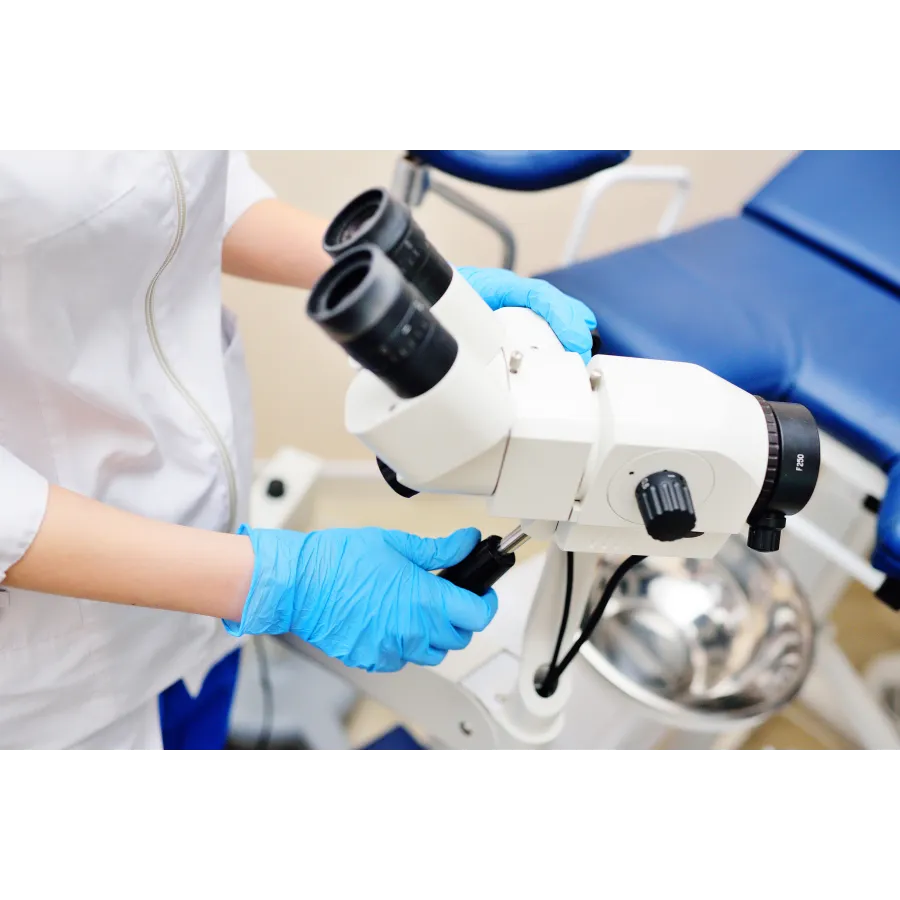Colposcopy
Colposcopy is a simple procedure that allows the doctor to closely examine the cervix, vagina and vulva for signs of disease.
What is a Colposcopy?
And How Advanced Gynecology Can Help
Colposcopy is most often recommended after receiving abnormal results of a Pap smear to further deduce and diagnose any problems. If the doctor finds an unusual grouping of cells during colposcopy, a biopsy or sample of tissue may be collected for testing.
This exam takes 5 to 10 minutes and the experience of having it done is very similar to what it feels like to have a Pap smear done. However, during a colposcopy, the doctor uses an instrument called a colposcope to view the inside of the vagina, cervix and vulva.
If you have received an abnormal Pap test result and need further testing, Advanced Gynecology is here for you. Our board-certified team of women's health experts are ready to help you with diagnostic care and a range of treatment options. We will counsel you about the best options for you and your health.

Why You Might Need a Colposcopy
A colposcopy can be used to diagnose cervical cancer, genital warts, vaginal cancer, and vulvar cancer, as well. Once the doctor gets the results from the colposcopy, you will be informed as to whether or not you need further testing, and what your options might be.
Your doctor may recommend that you get a colposcopy to help diagnose many different conditions, including:
- Genital warts
- Inflammation of the cervix (cervicitis)
- Precancerous changes in the tissue of the cervix
- Precancerous changes in the tissue of the vagina
- Precancerous changes of the vulva
If the doctor has recently recommended a colposcopy, he or she may have a reason to believe something may not be quite right with the cervix. Some of these reasons might include:
- Abnormal Pap results
- The cervix looked abnormal during a pelvic exam
- Testing positive for Human Papillomavirus, or HPV
- Experiencing unexplained bleeding
Potential Side Effects & Risk Factors for Colposcopy
Colposcopy is a safe procedure that carries very few risks and side effects.
Infrequent complications from biopsies taken during colposcopy occasionally occur, such as heavy bleeding, infection and pelvic pain.
Signs and symptoms that may indicate complications due to the procedure include:
- Heavy bleeding
- Chills
- Fever
- Severe abdominal pain
Call your doctor if you experience any of these symptoms after your colposcopy.
